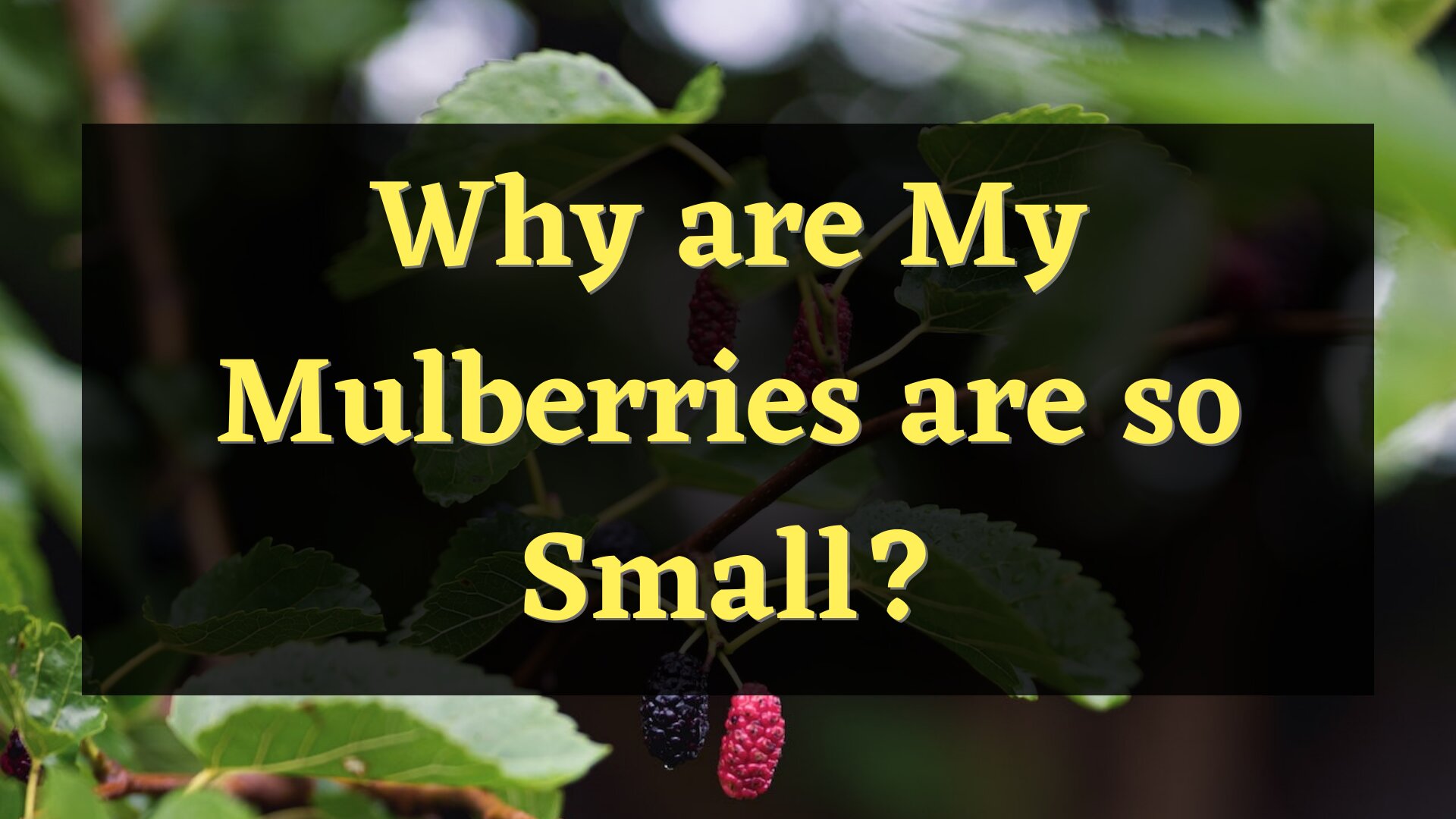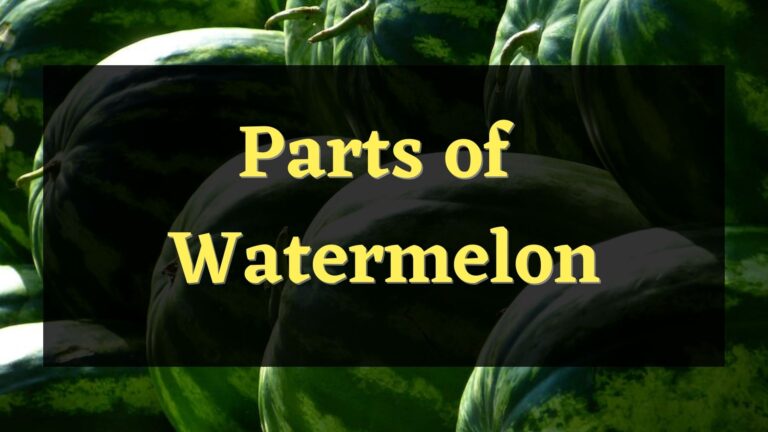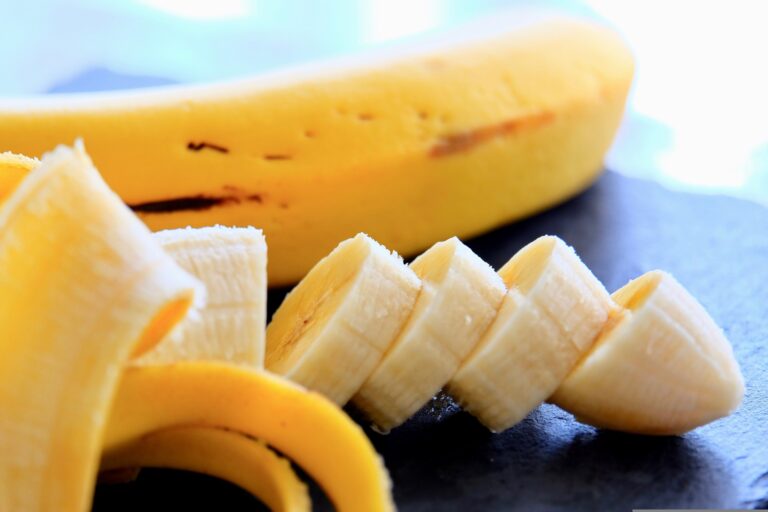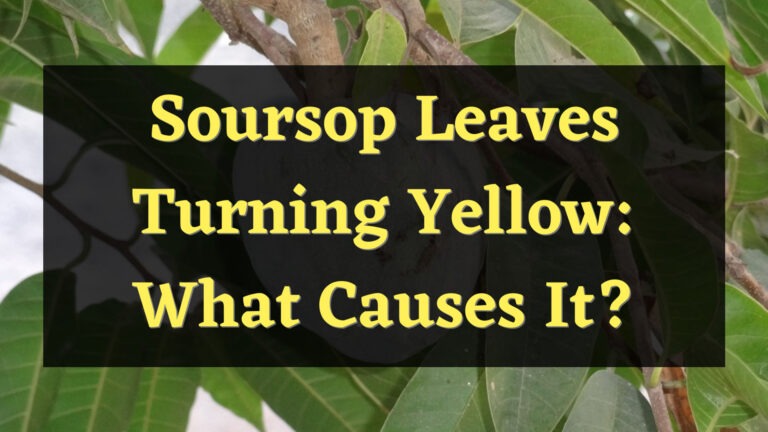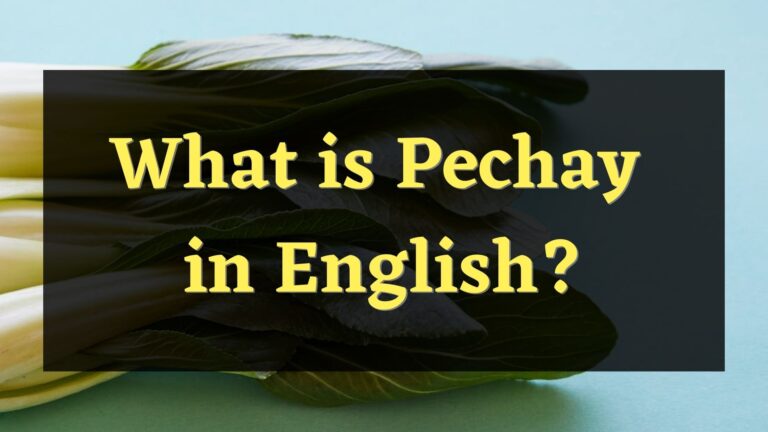Mulberries are a delicious, fast-growing, and nutrient-packed fruit that can be an alternative to blackberries. Although they are not commercially available due to their short shelf life, growing one is often the only way to have access to their fruits. So it is only natural to wonder why your mulberry tree is producing small fruits.
6 Reasons why Mulberries are small
The most common causes for your mulberry tree producing small fruits are insufficient water, lack of soil nutrients, cold temperatures, birds or insects, and early harvest. Diseases can also be a factor in the small fruits that your mulberry tree produces. However, it is very uncommon for a mulberry tree to have a disease, and unless there are obvious signs of fungal growth or parts of the tree that are rotting, it is very unlikely that it is the cause.
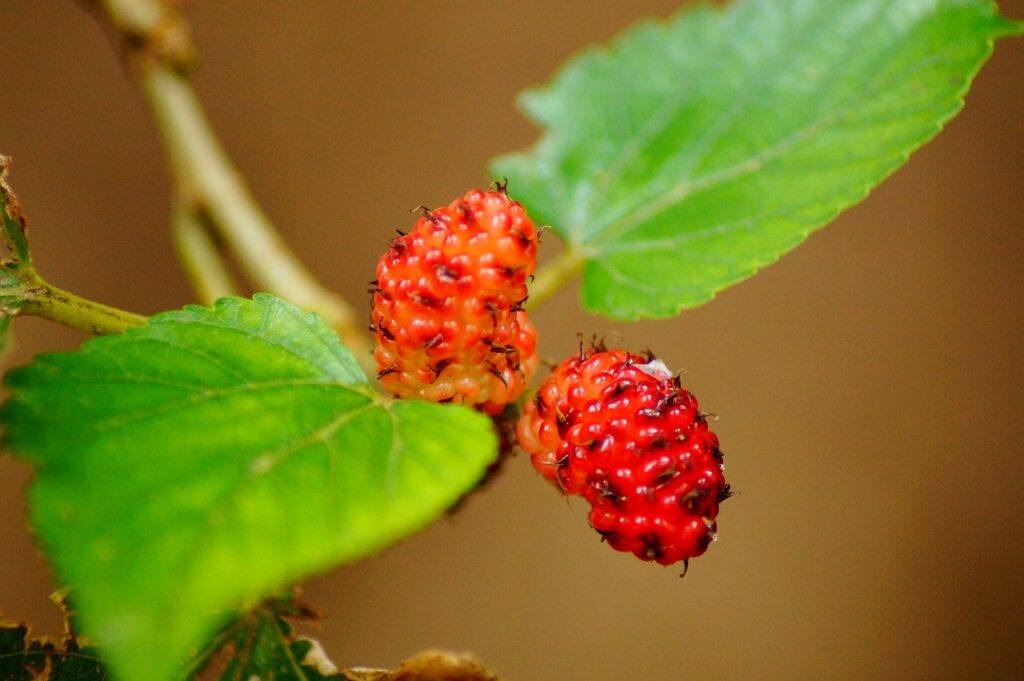
Insufficient Water
Mulberry trees are hardy trees and have the adaptability to survive in many varieties of conditions. They are even resistant to droughts, especially the older and more established mulberry trees. However, in order to produce a properly sized fruit, mulberry trees would require a decent amount of water. They would like their soil to be constantly moist throughout their fruit-bearing season, from its first bloom to the last mulberry to be harvested.
This is very true, especially for the younger trees, which can benefit a lot from regularly providing them with water during dry periods. If they are not given the required amount of water that they need, although it doesn’t significantly harm the tree, it would result in your mulberry tree producing small fruits.
It is also recommended to apply mulch to your young mulberry trees, as this can help retain water in the soil around them. Organic mulch will also feed the soil as time passes and will help suppress weeds from growing near the area where your tree is planted.
Lack of Soil Nutrients
Even though mulberry trees do not need pampering, they are able to survive in a range of soils that have varying nutrient levels. However, with just water and a lack of proper soil nutrients, your mulberry tree will tend to produce smaller mulberries than what you would have expected.
If you notice that the fruit on your mulberry tree is smaller than you would like, it could be because it is prioritizing its own growth over producing its fruits. Plants sometimes do this if the nutrients that they absorb are lacking across the board, or if there are any
Imbalance in nutrients
It is also important to not over-fertilize your mulberry trees. Applying a balanced fertilizer once a tear in their growing years can be beneficial but excess feeding of fertilizer can also cause a negative effect on your plant. If you want to speed up the growth of your mulberry tree, you can try adding potassium-focused organic fertilizer to the soil at the start of spring. This can also help the tree’s fruit production in the long run.
Cold Temperature
Mulberry trees thrive well in temperate climates and can survive winters. During their dormancy period, some mulberry trees can even handle temperatures that are as low as -25° F. However, if the tree is not dormant during winter, this will cause serious harm to the tree itself.
Cold temperatures during the tree’s growing season can result in its fruits dropping prematurely. Younger trees in particular are very vulnerable to this. Any temperature that goes as low as 50 °F can cause your tree to drop its fruits before it can even mature. If you are concerned about frost, it is best to protect your mulberry trees with plant coverings. Remember to always leave a gap between the cover itself and the buds when you are covering your mulberry tree. This is because frost can still infiltrate and damage the parts you’re attempting to protect if they’re touching.
If you have potted your mulberry tree, you can try transferring them to a warmer location temporarily to wait out the cold weather.
Birds or Insects
We are not the only species that enjoys the antioxidant-rich and vitamin-packed mulberry fruit. Birds in particular are voracious eaters of mulberries and will happily dig in on a mulberry tree for its entire bearing season. This can cause your mulberries to be small because you will only be left with low-quality fruits.
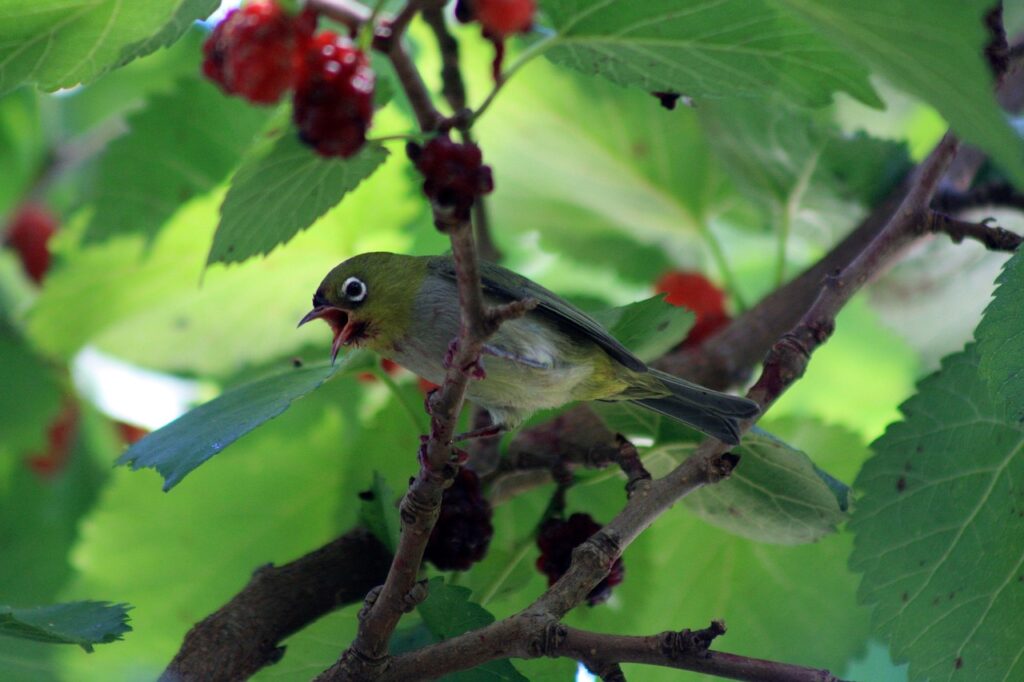
This is not necessarily a big issue. Mulberry trees, especially mature ones, have a tendency to produce an excessively abundant supply of berries. Most cultivators always find themselves with a surplus of fruit, so a small loss from birds or insects is not a big problem. The reason for your mulberries being small is that they just don’t get the chance to fully ripen and fatten due to the impatient and hungry birds that eat them before you have the chance to.
Early Harvesting
It may be because of the factors that can cause fruit loss that you want to harvest your mulberries early. However, harvesting them early would mean that they will not have a chance to fully ripen or grow bigger hence you are left with small mulberries. You’ll have to wait until August to get the best quality and largest size mulberries. This is the month when the mulberries will be at their largest and sweetest. You can just handpick them or lay a tarp under your mulberry tree and gently shake the branches so that the fruits will drop.
Conclusion
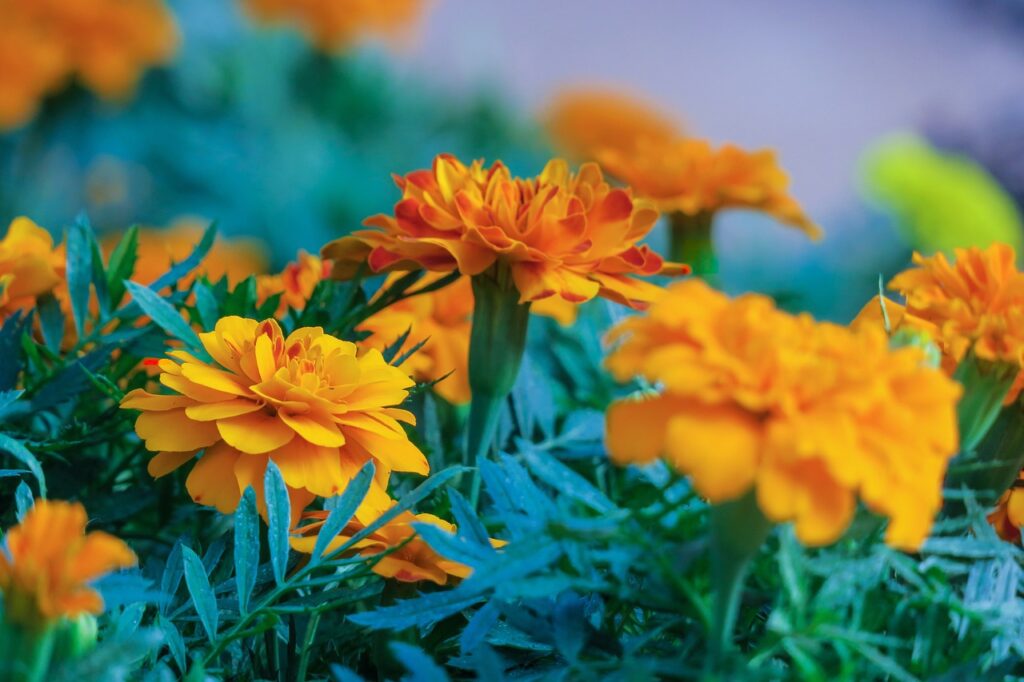
There can be many causes as to why your mulberries are so small. Although the reason for this is very simple and can be easily fixed if you want to. The only important thing you have to remember is to properly determine what really is the cause of why this is happening so that you can fix the problem properly. Treating your plant blindly without knowing the exact reason why the problem persists can cause negative effects not just on the fruits, but also on the tree itself.

Elizabeth Mcmillan is a passionate gardener with a strong interest in plants. She used to be a teacher, but Elizabeth has spent the last few years immersing herself in the world of plants, learning about their biology and cultural value and trying out different ways of growing them in her own garden. Elizabeth Mcmillan loves indoor plants, succulents, and cacti, and her friends and family know her as a plant care expert.

